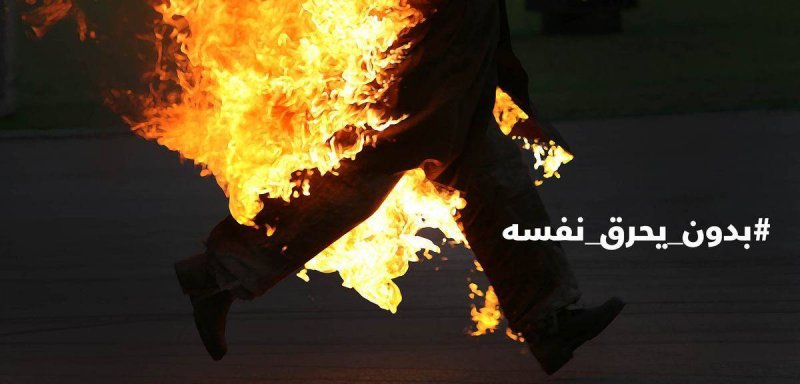The latest suicide attempt of a young “Bedoon” — or “stateless” — man in Kuwait has sparked widespread anger and condemnation over the “racism” and “injustice” that the government authorities there inflict upon members of this minority group. The outrage is also aimed at the ongoing “community indifference” towards their suffering, noting that such incidents continue to recur on a regular basis in light of the difficult humanitarian conditions that they live in.
The Bedoon — or Bidoon — are the “people of the desert” who haven’t been able to acquire the State of Kuwait nationality or citizenship since its independence in 1961. Kuwaiti law refers to them as “persons of undetermined nationality” or “stateless persons”. Their problem goes back to the failure to apply the articles of the Kuwaiti Nationality Law. They complain of discrimination against them on all levels and having difficulty accessing basic state services such as education, housing, work, health care and others.
Kuwaiti newspaper Al Rai confirmed that on August 6, “a stateless person of ‘undetermined nationality’ — born in 1989 — attempted suicide by setting himself on fire in Al-Sabah Hospital” where he works, noting that the burns affected 60% of the young man’s body.
Without shedding light on the cause of the incident, the newspaper limited itself with noting that a “felony of attempted suicide” had been registered against the young man “based on the authorization of the prosecution”.
Once again — and it probably won't be the last — a #Bedoon_burns_himself_alive in Kuwait. Commentators blame the injustice and racism of the authorities as well as “community indifference”
Shedding Light on the Causes of the Incident
Many expressed their outrage over this incident alongside other repeated incidents that reflect the poor conditions of the Bedoon. The condemnation carried on across social media sites until the words began trending under the hashtag #Bedoon_burns_himself_alive.
Many commentators referenced the young man’s despair that led him to suicide as a matter tied to the “practices of the country’s Central Agency for Information Technology (CAIT)”, which was established in 2010, by an Emiri decree for the sole purpose of resolving the Bedoon issue. However, on its official website, the agency defines them as “illegal residents”.
Human rights lawyer Mohammad al-Humidi says, “A #Bedoon_burns_himself_alive. The cause of his suicide attempt is that the Central Agency for Information Technology prevented him from renewing his ID card, which resulted in depriving him of his most basic human rights. He is not demanding citizenship, people, he is merely asking for a card so that he can only live.”
Ghadeer Al-Saleh tweeted, “I do not know the person... I do not know his circumstances, but I do know that the defeat and distress of men is difficult. I do know that Corona has broken and destroyed many homes. I do know that a lot of people are living only by name. I know that injustice has gone beyond what any human can endure. You either accept a false and fake nationality or no (ID) card. No card means no education, no health, or any sort of official papers and transactions!”
As for the Kuwaiti academic, Fahad Rashed Al-Mutairi, who commented on the incident on Twitter, he indicated that, “Hopelessness and despair comes after hope has been given the final chance, and the 'Bedoon' who commit suicide not only gave up on chasing a mirage, a miserable life, and false government promises, but also gave up on the societal indifference towards their suffering. There are undoubtedly many who care, but most of those — who, if they had cared, they would have made a difference — still do not care.”
Others blamed the fact that “society’s sympathy is only temporary and recedes with time.”
Kuwait’s National Diwan for Human Rights chair Jassem Mubaraki saying “Kuwait, as a state and government, doesn’t have a tendency to systematically violate human rights.” Activists see it as proof against false “claims that can’t be accepted by reason or logic”
Government Denial
Some also saw that the incident was a strong denial of the latest statements of the head of the Kuwait’s National Bureau (Diwan) for Human Rights, Jassem Al-Mubaraki, who said on August 4, that “Kuwait as a state and government does not have a tendency to systematically violate human rights,” noting that “some mistakes and some of the negatives are not the result of a government policy, but rather the result of shortcomings in the culture of human rights, but at the level of the government, it works to fully and completely respect human rights.”
In this regard, the Bedoon journalist and activist, Reda Al-Fadly, tweeted, “In less than 24 hours following the statement of the head of the National Bureau for Human Rights, a #Bedoon_burns_himself_alive to prove to him and to the world the falsity of these allegations, which cannot be accepted by reason or logic, especially since the #Bedoon constitute a small part of the Kuwaiti people. Their number is estimated at about 300,000 people who suffer daily from systematic violations for 60 years of black injustice.”
For his part, Abo Rakaan Al-Ajmi sees that the deaths of Bedoons “are in the necks (the fault of) of every official and decision-maker” in Kuwait, especially representatives from the National Assembly, who he believes they do not raise the Bedoon issue except when it is “a matter of electoral gain.”
Raseef22 is a not for profit entity. Our focus is on quality journalism. Every contribution to the NasRaseef membership goes directly towards journalism production. We stand independent, not accepting corporate sponsorships, sponsored content or political funding.
Support our mission to keep Raseef22 available to all readers by clicking here!
Interested in writing with us? Check our pitch process here!



